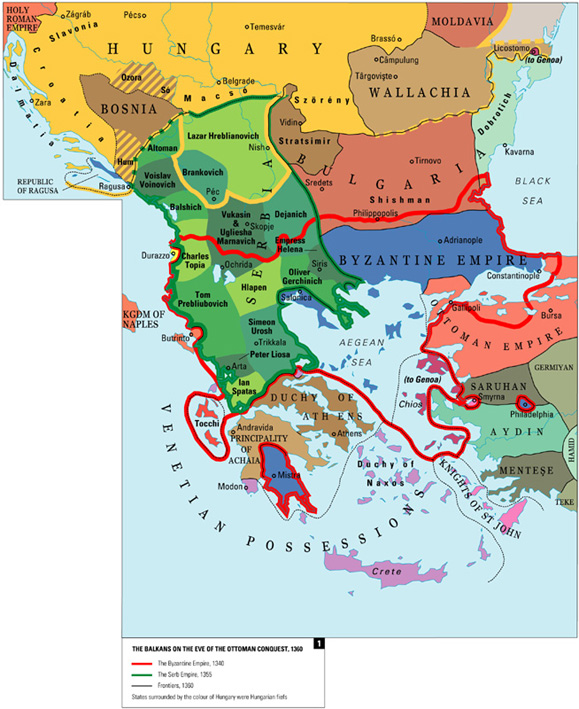I suggested Dobrogea to have a slavonic culture as it had been part of the Bulgarian Empire and, after the division of this political entity, it was independent (one of the three Bulgarian tzarates). The Romanian principality of Walachia controlled it only between the last decade of the 14th century and 1420, when the Ottomans conquered Tulcea (the last Romanian stronghold). Though there was a sizable Romanian presence, it was located mainly in the north, around the towns of Tulcea and Mizil. The southern cities of Silistra and Durostor, which, until the rise of Constanta, were the main cities of the region, were all Bulgarian, until the urban population of the region became turkified during the 17th and 18th centuries. So, Dobrogea should start 'slavonic,' having the option of changing to 'turkish' during the second half of the game.
In the case Walachia manages to conquer it (in the early game), I'm not sure if the region should change to romanian, or the principality itself should gain slavonic: I've always been of the opinion that medieval romanian, bulgarian and serbian cultures were very much similar, being rooted in the Orthodox creed, with a similar system of government (semi-elective princedomns with a politically powerful landed aristocracy), sharing the same court and religious language (old church slavonic), counting the years since the creation of the world, not the supposed birth of Christ, and producing similar artwork (manuscripts, churches and frescoes).
I do not think the Ottomans would have found the need to reward Walachia with Dobrogea in case the principality submitted. On the contrary, historically the Ottomans created military regions (rayas) on the Walachian territory itself, (Giurgiu, Braila), forced the move of the capital from Targoviste to Bucharest and the demolition of all castles and fortified monasteries in order to better control the political, military and economic life of the principalities. Furthermore, full control of the mouths of the Danube (achieved by the conquest of Dobrogea in 1420 and the Bugeac in the 1480's) was much too important to be given to a 'cash-cow' and otherwise irrelevant principality, as Walachia had become.
Wine has been a staple of Dobrogea since the ancient times, and we have records of the Greek colonies of Histria and Callatis which traded it to Greece. It was the most valuable commodity produced here, and also the Murfatlar is one of my favourite wines ;-). However, I wouldn't mind a change of the province goods, as grain, wool and fish were also produced here.
Laur
P.S. in the 17th century Dobrogea should get a populaton boost due to the migration of Lipovan Russians, fleeing religious persecution and subsequently settling in the Danube delta.


